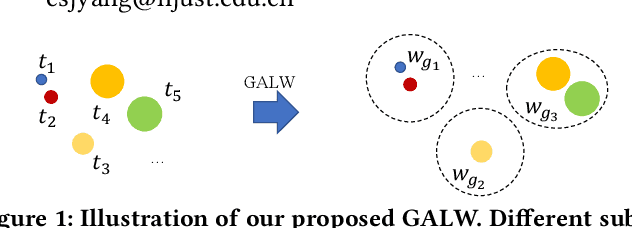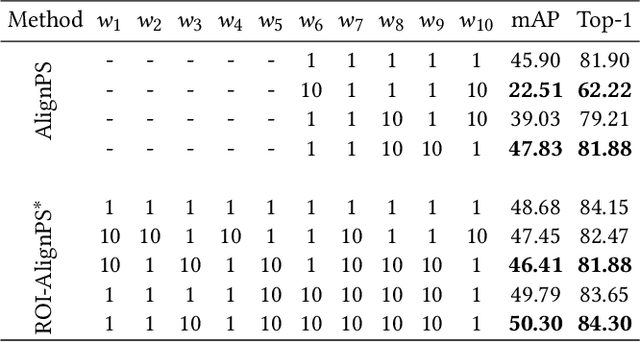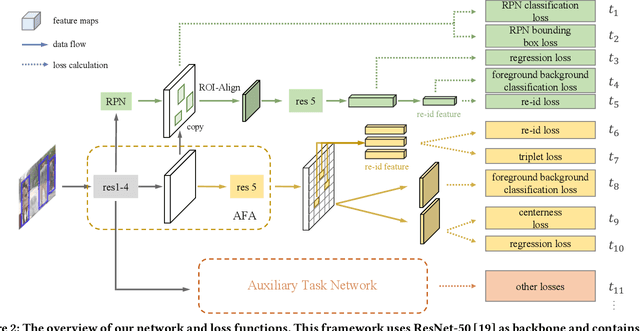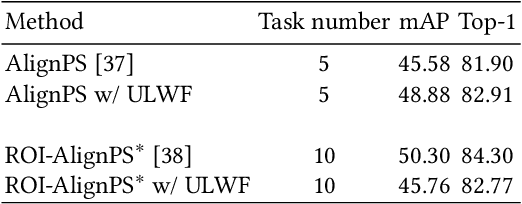Grouped Adaptive Loss Weighting for Person Search
Paper and Code
Sep 23, 2022



Person search is an integrated task of multiple sub-tasks such as foreground/background classification, bounding box regression and person re-identification. Therefore, person search is a typical multi-task learning problem, especially when solved in an end-to-end manner. Recently, some works enhance person search features by exploiting various auxiliary information, e.g. person joint keypoints, body part position, attributes, etc., which brings in more tasks and further complexifies a person search model. The inconsistent convergence rate of each task could potentially harm the model optimization. A straightforward solution is to manually assign different weights to different tasks, compensating for the diverse convergence rates. However, given the special case of person search, i.e. with a large number of tasks, it is impractical to weight the tasks manually. To this end, we propose a Grouped Adaptive Loss Weighting (GALW) method which adjusts the weight of each task automatically and dynamically. Specifically, we group tasks according to their convergence rates. Tasks within the same group share the same learnable weight, which is dynamically assigned by considering the loss uncertainty. Experimental results on two typical benchmarks, CUHK-SYSU and PRW, demonstrate the effectiveness of our method.
 Add to Chrome
Add to Chrome Add to Firefox
Add to Firefox Add to Edge
Add to Edge